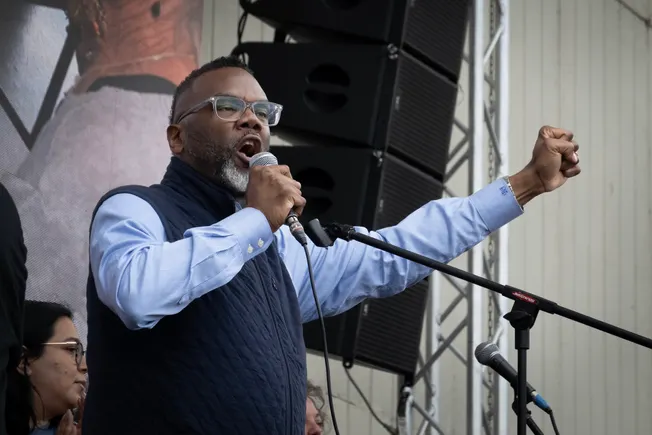Key Takeaways
- Homicides have significantly dropped in cities like Cleveland (46%), Chicago (38%), and Newark (60%) thanks to community-focused strategies.
- Investments in mental health services, violence intervention, and youth employment, rather than tough-on-crime policies, have driven these reductions.
- Mayors from various cities emphasize the importance of restoring trust between police and communities to further enhance public safety.
Significant Crime Reductions in Major Cities
Recent data reveals that cities such as Cleveland, Chicago, and Newark are experiencing remarkable decreases in homicides and violent crime. Cleveland’s homicides have fallen by 46% over three years, while Chicago reports a 38% drop since 2020. Newark has achieved a reduction of over 60% in violent crime and homicides over the last decade.
During a media briefing by the Democratic Mayors Association and the justice advocacy group Vera Action, city mayors noted that these positive trends are not a result of traditional zero-tolerance approaches. Instead, they credit community-centered initiatives, including targeted policing, violence intervention programs, mental health services, and youth employment programs.
Insha Rahman, vice president at the Vera Institute of Justice, highlighted that overall nationwide homicides have decreased by 22.6% since 2020, alongside a 6.4% drop in violent crime and an 8.8% decline in property crime. Rahman pointed out that substantial federal and local funds have been directed toward community-based safety solutions during this period, while the police numbers have actually decreased by 5% to 10%.
Chicago Mayor Brandon Johnson discussed the city’s strategy of deploying officers to collaborate with community violence intervention groups and invest in mental health services targeting its most crime-ridden areas. He emphasized the need to address historical mistrust between police and community members, particularly in Black neighborhoods, acknowledging that improving constitutional policing alone is insufficient for confronting these complex issues.
Similarly, Baltimore Mayor Brandon Scott boasted about achieving the lowest levels of violent crime and homicides in the city’s history this year. He attributes this success to deterrence strategies and investments in community programs, including recreation facilities in underserved areas. Scott criticized previous zero-tolerance policing methods, stressing that success relies on accountability and the nature of arrests rather than sheer numbers.
Newark Mayor Ras Baraka detailed his city’s comprehensive intervention strategy combining healthcare, community organizations, and focused policing to build relationships and trust between residents and law enforcement. Baraka and Cleveland’s Mayor Justin Bibb expressed concern over the Trump administration’s decision to cancel numerous public safety grants, warning that such actions could hinder ongoing community safety initiatives.
The content above is a summary. For more details, see the source article.















